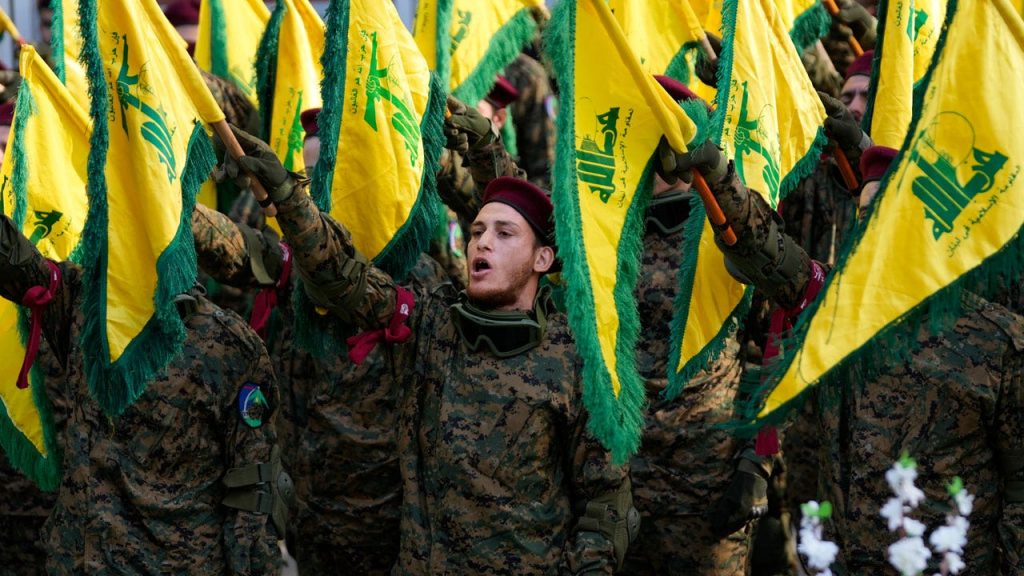The debate surrounding U.S. aid to the Lebanese Armed Forces (LAF) has intensified amidst allegations of collusion between the LAF and the Hezbollah terrorist group. Critics argue that continued financial support for the LAF effectively empowers Hezbollah, citing reports of intelligence sharing and classified document leaks from LAF officials to the terrorist organization. These accusations raise serious questions about the effectiveness and accountability of U.S. military aid, with some analysts calling for a complete cessation of funding. The core concern is that the LAF, despite receiving billions of dollars in U.S. assistance since 2006, has not only failed to curb Hezbollah’s influence but has seemingly become entangled with it, undermining the stated goal of fostering stability in the region.
The LAF’s alleged complicity with Hezbollah comes at a particularly sensitive juncture, as a fragile ceasefire between Israel and Hezbollah remains in place, with a further extension recently negotiated by the U.S. Hezbollah, however, has shown outright defiance of the ceasefire, calling for Israel’s immediate withdrawal and blaming the U.S., France, and the UN for any delays. The terrorist group’s actions have further destabilized Southern Lebanon, leading to violent clashes with Israeli forces and civilian casualties. This underscores the volatile security situation in the region and the challenges in maintaining a peaceful resolution, especially when Hezbollah actively seeks to escalate tensions. The LAF’s alleged failure to prevent Hezbollah’s rearmament and its return to Southern Lebanon raises serious questions about its commitment to upholding the ceasefire and controlling the terrorist group’s activities.
The Trump administration officials, while acknowledging the complexities surrounding Hezbollah’s influence in Lebanon, believe that the recent election of President Aoun, a former LAF commander, presents a “historic opportunity” for change. However, the apparent cooperation between Hezbollah and the LAF casts a shadow over this optimism. While some argue that continued U.S. aid is essential to maintain a semblance of stability and prevent the LAF from falling fully under Hezbollah’s control, others contend that this aid is inadvertently strengthening the terrorist organization. The central question remains whether the U.S. can effectively leverage its aid to the LAF to genuinely counter Hezbollah’s influence or whether alternative strategies are needed.
Experts suggest that a radical shift in U.S. policy is required, moving away from general aid towards specifically funding units within the LAF dedicated solely to disarming Hezbollah. These units, reporting directly to the Lebanese president and army command, could bypass Hezbollah’s influence within the broader LAF structure. Furthermore, critics of the Biden administration contend that the administration’s renewed focus on diplomacy with Iran has indirectly emboldened Hezbollah, hindering efforts to contain the terrorist group. The argument posits that the Biden administration’s prioritization of the Iran nuclear deal has prevented it from taking stronger action against Iranian proxies like Hezbollah, contributing to the current instability in Lebanon.
The current situation in southern Lebanon remains perilous, with Hezbollah actively challenging the ceasefire and escalating tensions with Israel. The LAF’s apparent inability or unwillingness to prevent Hezbollah’s rearmament and return to the region further complicates the situation, highlighting the limitations of U.S. aid in its current form. The incidents of civilian casualties and clashes with Israeli forces underscore the urgent need for a more effective strategy to counter Hezbollah’s influence and ensure stability in the region. Furthermore, some Israeli experts warn against accepting Hezbollah’s narrative, which portrays Israel as the aggressor and seeks to exploit civilian casualties for propaganda purposes.
The central debate revolves around the effectiveness and implications of continued U.S. aid to the LAF. While some view it as a necessary tool to maintain some level of stability, others argue that it indirectly empowers Hezbollah. The reported collusion between the LAF and Hezbollah raises serious concerns about the accountability and efficacy of U.S. aid, prompting calls for a fundamental policy change. The ongoing tensions in southern Lebanon, fueled by Hezbollah’s rejection of the ceasefire, highlight the urgency of finding a more effective strategy to deal with the terrorist group and ensure long-term security in the region. The international community, including the U.S., France, and the UN, faces a critical challenge in navigating this complex situation and finding a solution that can both address the immediate security concerns and promote lasting stability in Lebanon.


